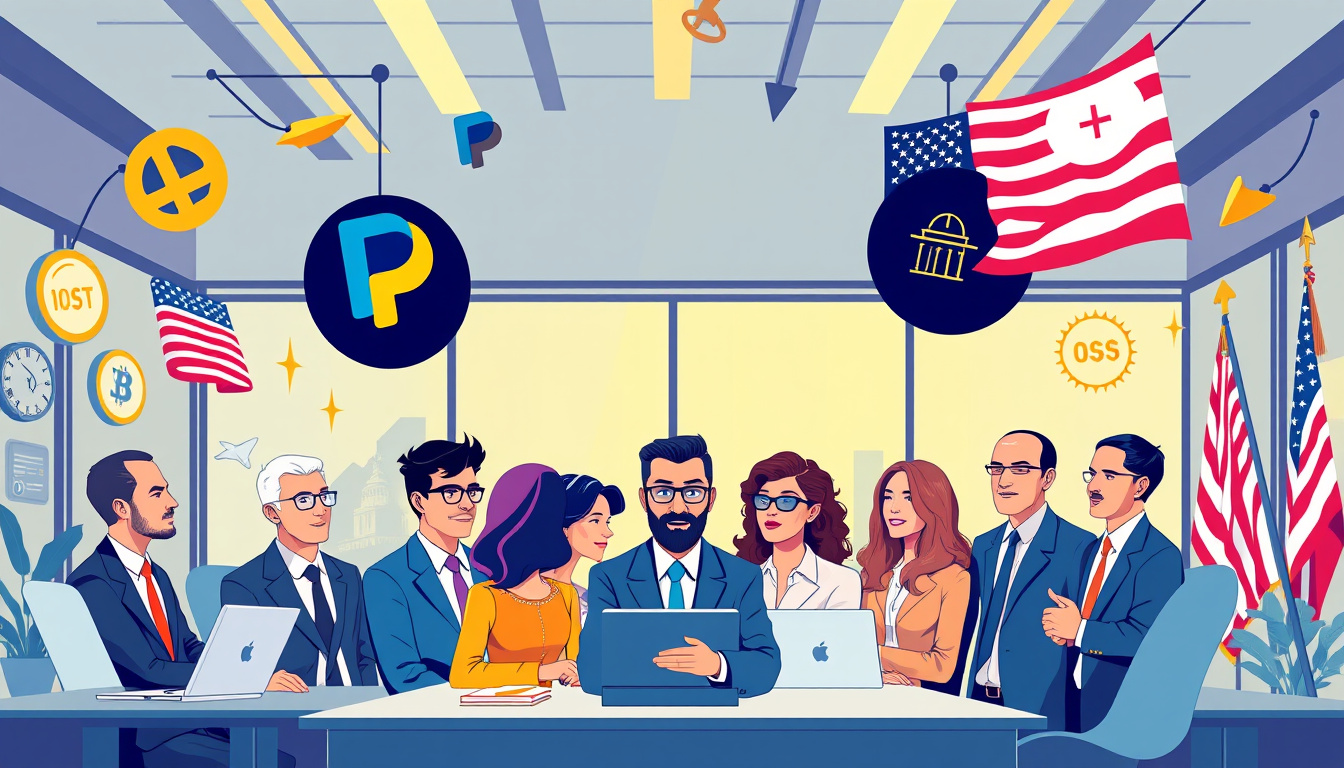In the intricate web of technology and politics, certain influential groups emerge that leave a significant mark on the landscape of governance. One such group is known as the "PayPal Mafia," a collective of former PayPal employees and founders who have transitioned from digital payments to wielding considerable influence across various sectors, including politics. This article explores the origins of the PayPal Mafia, its members, and its noteworthy, yet sometimes controversial, role in shaping U.S. governance, particularly during the Trump administration.
The Genesis of the PayPal Mafia
The term “PayPal Mafia” refers to a cadre of technology entrepreneurs who were key players in the early development of PayPal, a company established in 1998 under the names Confinity and then x.com, before finally becoming known as PayPal after eBay acquired it in 2002 for $1.5 billion. Co-founders like Elon Musk, Peter Thiel, Reid Hoffman, and several others initially thrived in a uniquely entrepreneurial culture that valued innovation over corporate strictures. Following the acquisition, many original employees found themselves restless under eBay’s more traditional corporate governance, leading to a significant exodus of talent.
This mass migration served as the launching pad for numerous ventures and innovations. Many of the original members have since established or invested in major tech firms such as LinkedIn, YouTube, and Airbnb, effectively becoming trailblazers within Silicon Valley and beyond.
The Power Players
At the forefront of the PayPal Mafia's endeavors is Peter Thiel, a prominent venture capitalist and political figure often referred to as the "Don" of the group. Thiel's reputation as a contrarian thinker and his libertarian beliefs have driven much of the Mafia's collective philosophy toward governance. He founded Palantir Technologies, a company specializing in data analytics, and has been a crucial investor in various successful startups, including Facebook and Stripe.
Elon Musk, perhaps the most recognizable name in the tech world, was also an integral figure in the PayPal saga. Despite being ousted as CEO before the company's acquisition, Musk went on to revolutionize several industries through his ventures such as Tesla and SpaceX, as well as entering the social media arena with the recent acquisition of Twitter, rebranded as X. His influence extends to reshaping political narratives, particularly during the tumultuous political climate surrounding Donald Trump.
Other notable members include Reid Hoffman, who co-founded LinkedIn and has political ties to the Democratic Party, thus highlighting the ideological diversity within the group. David Sacks, another PayPal veteran, emerged as a significant figure in political fundraising, creating pathways for tech elites to support candidates aligned with their libertarian-leaning views.
Shaping Political Landscapes
The influence of the PayPal Mafia on U.S. governance has been particularly prominent during the Trump administration. Their collective experience in navigating regulatory red tape during their time at PayPal has influenced their approach to governance—favoring a reduction in bureaucracy and a push for libertarian ideals. While their links to Trump are particularly notable, this relationship is not universal among all members of the Mafia, with figures like Reid Hoffman openly opposing Trump's ideologies.
Elon Musk's reinvigoration of Trump's Twitter presence post-acquisition has been critical. By restoring Trump's account and promoting content favorable to him, Musk has leveraged the platform's vast reach to amplify ideas and narratives that resonate with the MAGA movement. Simultaneously, David Sacks has embedded himself within political circles, successfully raising substantial funds to support Trump and his allies, effectively making him a facilitator of tech influence in politics.
A Network of Influence
The relationships within the PayPal Mafia exemplify a power network that extends beyond mere business enterprises. They share overlapping interests, cultivate syncretic partnerships, and effectively function as a lobbying body to influence policy. The intertwining of business acumen and political strategy reinforces the idea that the PayPal Mafia are not merely tech elites but rather architects of modern governance, seeking to apply their innovative thinking to reshape political landscapes.
Conclusion
The PayPal Mafia represents a fascinating intersection between technology and politics, offering a glimpse into how entrepreneurial minds can exert substantial influence over the governing processes. As members of the Mafia engage in political funding and strategizing, they reflect broader trends of corporate influence in governance—prompting critical discussions about the implications of such interconnections. Their distinct approach to regulation, innovation, and politics not only reshapes the tech industry but also poses essential questions about democracy, accountability, and the future of governance in the United States.
By Wolfy Wealth - Empowering crypto investors since 2016
📊 Expert Market Analysis
📈 Exclusive Trade Signals
🕵️♂️ Early Access to Research
Instagram Youtube TwitterX
Disclosure: Authors may be crypto investors mentioned in this newsletter. Wolfy Wealth Crypto newsletter, does not represent an offer to trade securities or other financial instruments. Our analyses, information and investment strategies are for informational purposes only, in order to spread knowledge about the crypto market. Any investments in variable income may cause partial or total loss of the capital used. Therefore, the recipient of this newsletter should always develop their own analyses and investment strategies. In addition, any investment decisions should be based on the investor's risk profile.

